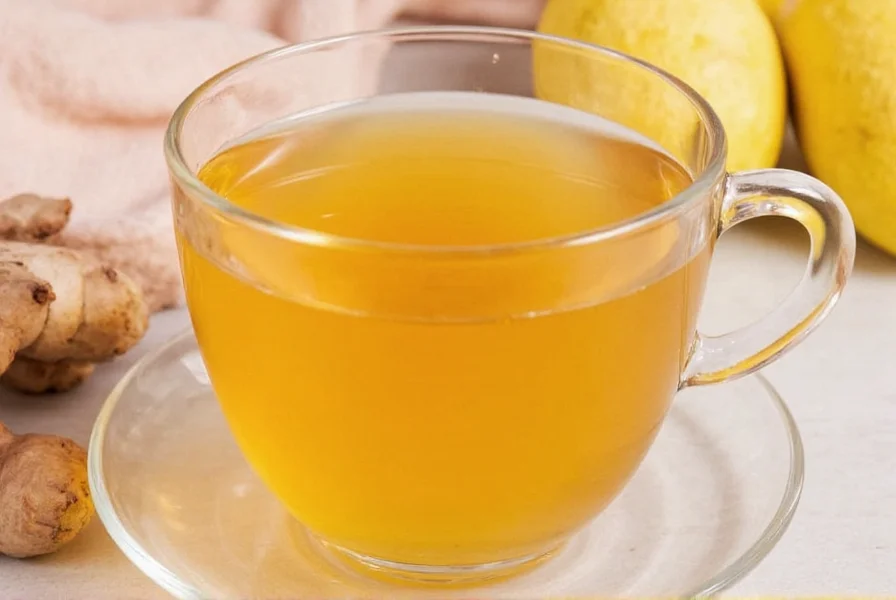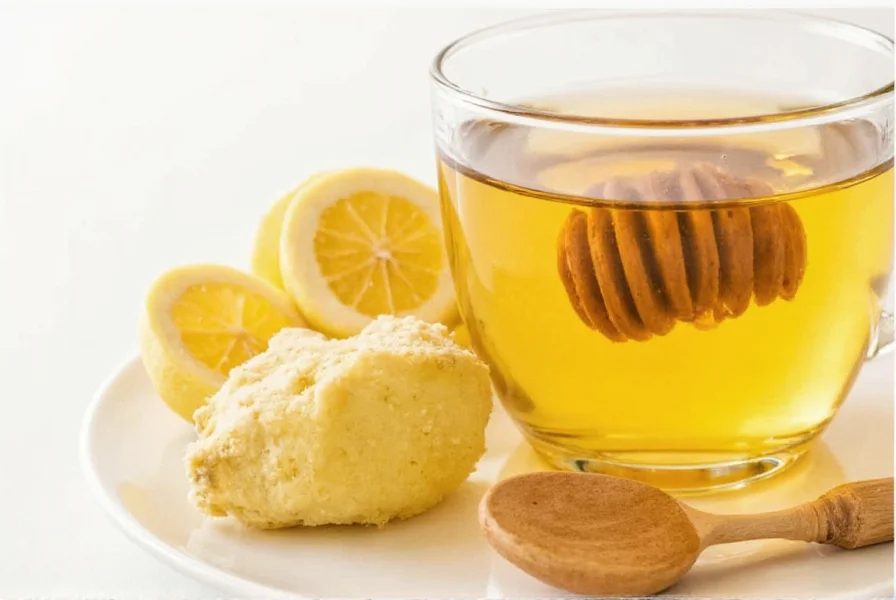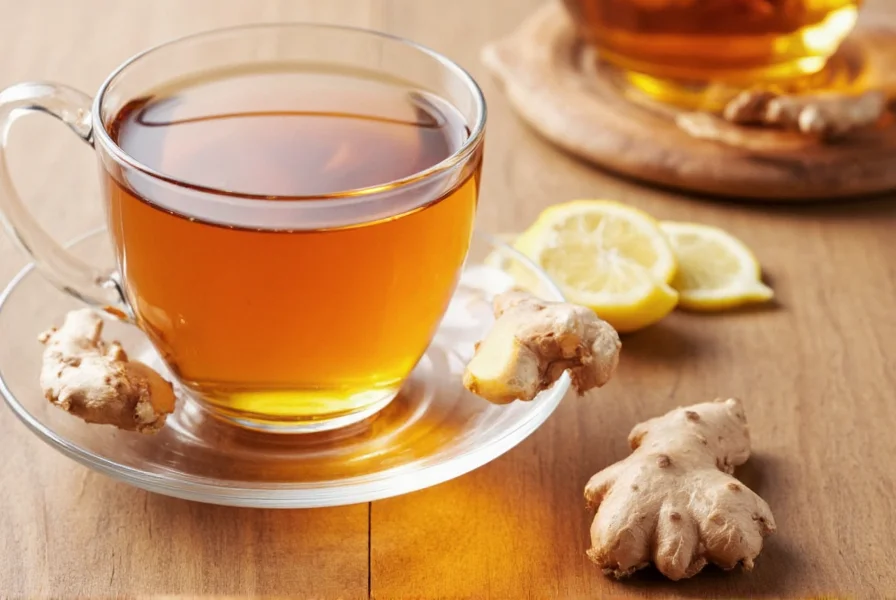Ginger honey tea has become a staple in natural wellness routines worldwide, valued for its simplicity and multi-functional benefits. This ancient remedy combines two powerful natural ingredients that have been used for centuries across Asian and Middle Eastern medicinal traditions. Modern research continues to validate many traditional uses while clarifying appropriate applications and limitations.
The Science Behind Ginger and Honey Synergy
Ginger contains bioactive compounds called gingerols and shogaols, which scientific studies confirm have anti-inflammatory and antioxidant properties. A 2020 review in Nutrients journal highlighted ginger's effectiveness in reducing nausea and supporting digestive health. Raw honey, particularly Manuka honey, contains hydrogen peroxide and methylglyoxal that provide antimicrobial benefits. When combined in tea form, these ingredients create a synergistic effect that enhances their individual properties.
Temperature matters significantly in preparation. Adding honey to water above 140°F (60°C) destroys beneficial enzymes and reduces therapeutic value. This explains why traditional preparation methods always call for cooling water slightly before adding honey—a crucial detail often missed in modern recipes.
Evidence-Based Health Applications
Clinical research supports specific uses of ginger honey tea:
| Application | Scientific Support | Recommended Usage |
|---|---|---|
| Sore throat relief | Multiple studies show honey reduces cough frequency and severity better than placebo | 1-2 tablespoons in warm tea, consumed 3-4 times daily |
| Digestive support | Ginger accelerates gastric emptying; effective for nausea | 8-12oz before meals or when discomfort begins |
| Cold symptom management | Honey provides cough relief; ginger may reduce inflammation | At first sign of symptoms, 2-3 cups daily |
It's important to note that while ginger honey tea offers symptomatic relief, it doesn't cure underlying conditions. The World Health Organization recognizes honey's effectiveness for cough suppression in children over 1 year, but emphasizes it's a supportive measure rather than primary treatment.
Optimal Preparation Method for Maximum Benefits
Creating effective ginger honey tea requires attention to ingredient quality and preparation technique:
- Select fresh ginger root - Look for firm, smooth skin with no wrinkles (approximately 1-2 inches)
- Peel and slice thinly - Increases surface area for better extraction of active compounds
- Simmer in 8-12oz water - For 10-15 minutes (longer simmering extracts more gingerols)
- Cool to 140°F (60°C) - Use a thermometer for precision; too hot destroys honey's benefits
- Add 1-2 tablespoons raw honey - Stir gently to preserve enzymatic properties
- Optional additions - Lemon juice (vitamin C boost) or a pinch of turmeric (enhanced anti-inflammatory)

Important Considerations and Limitations
Ginger honey tea provides natural support but has important limitations:
- Not suitable for infants - Honey contains spores that can cause botulism in children under 1 year
- Diabetes considerations - Contains natural sugars; monitor intake if managing blood glucose
- Medication interactions - Ginger may interact with blood thinners; consult doctor if taking anticoagulants
- Dental health - Honey's sugar content requires rinsing mouth after consumption
- Quality matters - Raw, unprocessed honey provides benefits that pasteurized honey lacks
Research published in the Journal of Ethnopharmacology notes that while ginger shows promise for nausea relief, it shouldn't replace medical treatment for severe or persistent symptoms. Similarly, honey's benefits for coughs don't extend to bacterial infections requiring antibiotics.
Variations for Specific Needs
Tailor your ginger honey tea for different purposes:
- Cold and flu support: Add lemon juice and a pinch of cayenne pepper for enhanced circulation
- Digestive focus: Increase ginger quantity (2-3 inches) and add fennel seeds
- Sleep support: Use milder ginger preparation with chamomile and lavender
- Immune boost: Incorporate fresh turmeric and black pepper (enhances curcumin absorption)

When to Choose Ginger Honey Tea
This natural remedy works best in specific situations:
- At the first sign of seasonal illness
- During travel to reduce motion sickness
- After rich meals to support digestion
- Before bedtime for cough relief (for children over 1 year)
- As part of morning routine for general wellness
Timing affects efficacy—consuming ginger honey tea 20-30 minutes before potential nausea triggers shows better results than waiting for symptoms to appear. For digestive support, consumption before meals yields optimal benefits according to clinical observations.
Understanding Realistic Expectations
While popular in wellness circles, ginger honey tea has specific, evidence-supported applications rather than being a universal cure. It provides symptomatic relief for minor conditions but shouldn't replace medical care for serious health issues. The combination works through multiple mechanisms—ginger's antiemetic properties, honey's demulcent effect on irritated tissues, and the soothing warmth of the beverage itself.
Quality ingredients significantly impact effectiveness. Studies comparing raw versus processed honey show substantially higher enzyme activity and antioxidant levels in raw varieties. Similarly, fresh ginger contains more active compounds than powdered forms, though both provide benefits.
Frequently Asked Questions
How often can I safely drink ginger honey tea?
Most adults can safely consume 2-3 cups daily. Those with sensitive stomachs may experience heartburn with excessive ginger. People taking blood thinners should consult their doctor before regular consumption due to potential interactions.
What's the best honey for ginger tea benefits?
Raw, unprocessed honey preserves beneficial enzymes and antioxidants destroyed during pasteurization. Manuka honey offers additional antimicrobial properties, but any high-quality raw honey provides significant benefits compared to processed varieties.
Can ginger honey tea help with nausea during pregnancy?
Ginger shows effectiveness for pregnancy-related nausea in multiple studies, but pregnant women should consult their healthcare provider before regular use. The American College of Obstetricians and Gynecologists considers ginger safe in moderate amounts for pregnancy nausea.
Why shouldn't I add honey to boiling water for ginger tea?
Water above 140°F (60°C) destroys beneficial enzymes and reduces the therapeutic value of raw honey. Allowing the ginger tea to cool slightly before adding honey preserves its antimicrobial and antioxidant properties while maintaining optimal texture and flavor.











 浙公网安备
33010002000092号
浙公网安备
33010002000092号 浙B2-20120091-4
浙B2-20120091-4